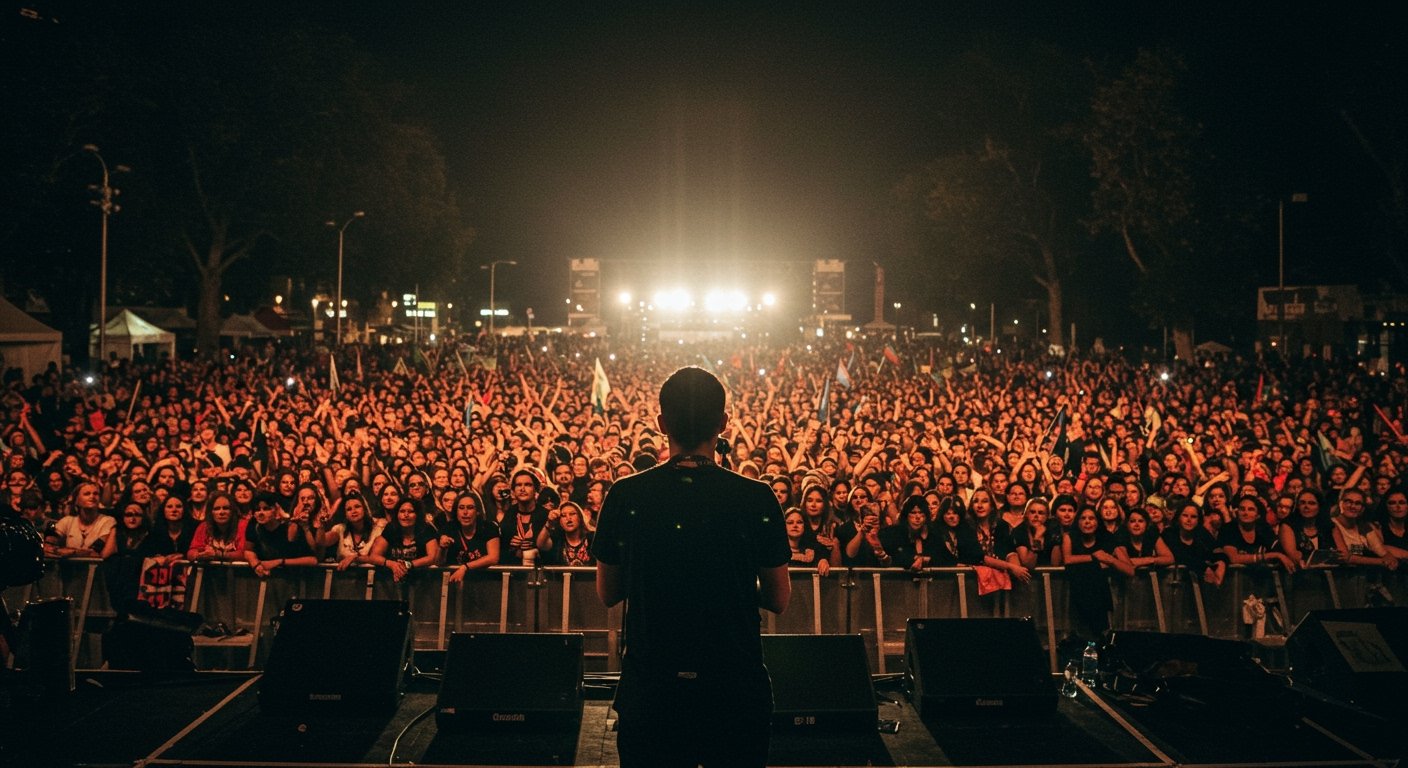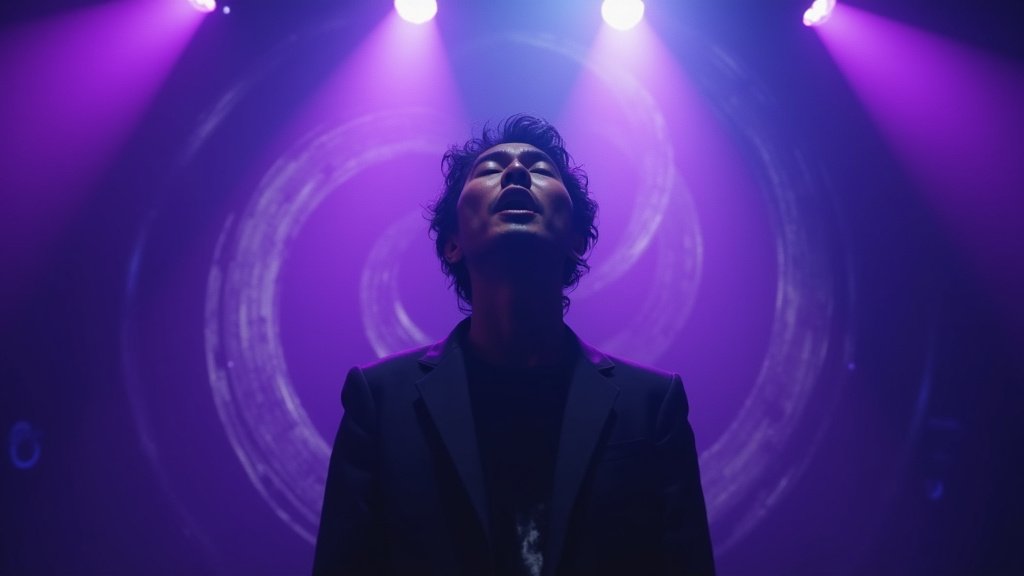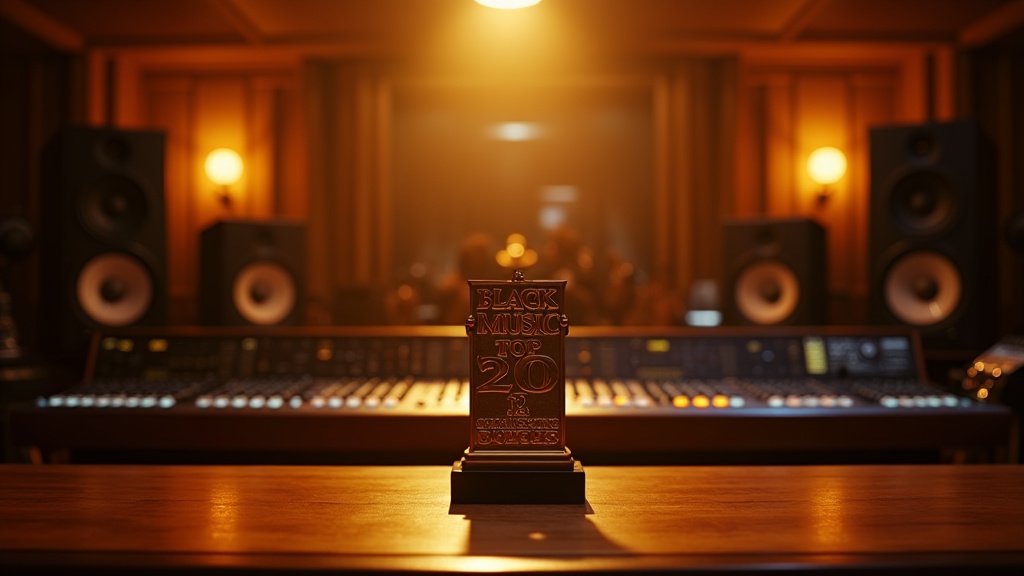In a striking moment at an Independence Day concert on July 7, 2025, Billie Joe Armstrong, the dynamic frontman of the acclaimed American rock band Green Day, reportedly led concert-goers in a direct and emphatic chant targeting former President Donald Trump [16]. The incident quickly garnered attention, highlighting the intersection of music, celebrity, and political expression in contemporary public life.
The Event Unfolds
The concert, part of Independence Day commemorations extending beyond the official July 4th holiday, provided a large platform for the band known for its politically charged lyrics and performances. While the specific venue location of the Independence Day concert on July 7, 2025, was not immediately detailed in initial reports, the event clearly attracted a substantial crowd. Reports indicate that during Green Day’s set, Armstrong engaged the audience, leading them in the blunt chant, “Fuck Donald Trump” [16]. This direct address from the stage to the crowd resonated widely, prompting significant participation from attendees. Such moments underscore the potent role of live performances as spaces for collective expression, including political sentiment.
Context and Background
Green Day, formed in the late 1980s, rose to global prominence with albums like “Dookie” and later cemented their status as a band unafraid of political commentary with the release of “American Idiot” in 2004. That album, a rock opera, was widely interpreted as a critique of American society and the George W. Bush administration. Billie Joe Armstrong himself has historically been outspoken on various political and social issues, using his platform to voice opinions on topics ranging from gun control to presidential policies.
The decision to lead a chant against a prominent political figure, particularly at an event nominally tied to a national holiday celebrating independence, adds layers of complexity to the incident. Independence Day concerts often serve as communal gatherings intended to foster unity and patriotic sentiment. Armstrong’s action deliberately introduced a divisive political statement into this context, leveraging the collective energy of a rock concert crowd for a clear political message. The date, July 7, 2025, while slightly past the official July 4th holiday, still places the event firmly within the period of national reflection and celebration associated with Independence Day.
Public Reaction and Implications
The incident is likely to provoke varied reactions. Supporters of Green Day and critics of Donald Trump may view Armstrong’s action as a brave and necessary use of his platform to voice dissent and mobilize public opinion. They might see it as consistent with rock music’s historical role as a vehicle for protest and counter-culture expression. The participation of the crowd in the chant suggests a shared sentiment among a segment of the concert-goers.
Conversely, critics are likely to condemn the action as inappropriate for a public event, particularly one linked to national celebration. They might argue that introducing such explicit political animosity disrupts the intended spirit of unity and celebration, and that a concert stage is not the place for partisan political attacks. The intensity and bluntness of the specific language used in the chant, “Fuck Donald Trump,” are particularly likely to draw criticism from those who find it coarse or unnecessarily provocative.
Major public figures, especially those with the reach and influence of a musician like Billie Joe Armstrong, face scrutiny for their political expressions. Actions like this can energize a band’s base while alienating other potential listeners or attendees. The incident at the July 7, 2025 concert underscores the ongoing tension in society regarding the role of artists in politics and the appropriate boundaries, if any, for political expression in public entertainment spaces.
Broader Trends in Music and Politics
Musicians have a long history of using their art and their platform for political commentary and activism, ranging from folk singers of the civil rights era to punk rock bands of the 1970s and contemporary artists across genres. Concerts, as large public gatherings, have often served as venues for expressing collective political sentiment, whether through song, speeches, or spontaneous crowd actions.
Armstrong’s action follows a pattern of artists making direct political statements during live performances, a trend that has perhaps become more pronounced in recent years amidst heightened political polarization. The widespread availability of cell phone cameras and social media ensures that such moments, like the chant led by Armstrong on July 7, 2025, are rapidly recorded, shared, and amplified, extending their reach and impact far beyond the live audience.
Conclusion
The incident at the Independence Day concert on July 7, 2025, where Green Day frontman Billie Joe Armstrong led attendees in a chant against Donald Trump, represents a notable instance of a major musical artist engaging in overt political expression from the stage [16]. It highlights the continued willingness of figures like Armstrong to use their visibility to address political issues, sparking discussion about the role of artists in the political sphere and the nature of public discourse in polarized times. The event serves as another data point in the ongoing narrative of how cultural figures navigate and influence the political landscape.





